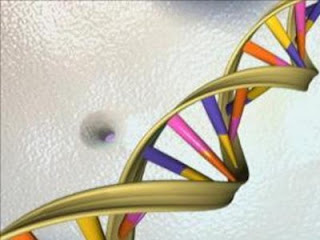
Thursday, September 18, 2008
Trash to AT Treasures
8:00am * 11:30am
Assistive Technology Resource Room, Midlands Center, Columbia
Presenters: Carol Page O’Day, PhD, CCC-SLP, ATP,
SC Assistive Technology Program, USC School of
Medicine-Center for Disability Resources;
Patricia Quattlebaum, MSP, CCC-SLP, Developmental
Pediatric Clinic, USC School of Medicine-Center for Disability Resources
Class Description: Many assistive technology
devices are available for communication, switch
access, computer access, activities of daily
living, and literacy. Assistive technology
devices can be very expensive, but they don’t
always have to be. Many examples of how to make
assistive technology devices using common objects
around the home will be demonstrated. The
fundamentals of appropriately selecting and using
various assistive technology devices will also be
reviewed. The workshop will conclude with a
make-and-take opportunity for participants to
choose from different projects to construct and
then take the finished product home with them.
Target Group: Speech-language pathologists,
special-education teachers, occupational therapists, parents and caregivers.
Agenda:
8:00-8:30 Registration
8:30-10:00
I. How to Get Started
II. Low Cost AT Solutions: Communication Devices
III. Basic AT Considerations
* Low Cost AT Solutions: Switches
* Low Cost AT Solutions: Computer Access
* Low Cost AT Solutions: Activities of Daily Living
10:00-10:15 Break
10:15-11:30 Make and Take
Cost: $15.00, payable to the University of South
Carolina. Mail checks to: Sally Young, SC
Assistive Technology Program, USC School of
Medicine, CDR , Columbia, SC 29208. Checks or
purchase orders must be received by
9/12/08. This workshop is limited to 14 attendees.
To register for this workshop:
* Option 1: Complete the
online
registration form
* Option 2: Email Sally Young at
Sally.Young@uscmed.sc.edu
* Option 3: Call Sally Young at (803) 935-5263 or 800-915-4522.
* Option 4: Fax your registration information
to (803) 935-5342. Please include your name,
organization, address, email address, phone.
----------
Friday, September 19, 2008
Accessible PDFs! Making PDF Documents User
Friendly and Geared for Accessibility
8:30am - 4:00 pm
South Carolina Archives and History Auditorium
8301 Parklane Road
Columbia, S C 29223
Download Flyer (pdf)
Download Adobe Reader
Presenter: Jon Brundage,
Jon Brundage and Associates
Jon Brundage is a nationally known accessibility
trainer and author. He has provided many sessions
on all aspects of accessibility to corporations,
governments, and educational institutions. In
scores of sessions over the years he has trained
several thousand individuals on Section 508
requirements and the W3C Web Accessibility
Initiative. Jon, as managing editor, was one of
the founders of Accessible Content magazine. Mr.
Brundage is also a web developer and has
performed analysis of the accessibility conformance level of many web sites.
Cost: Free. Limited to 200 attendees.
This workshop will address the creation, analysis
and remediation of PDF Documents for
Accessibility. Participants will gain knowledge
of the potential barriers to accessibility that
Adobe Acrobat Portable Document Files (PDF) pose.
An understanding of PDF technology will be
learned. Class members will gain understanding of
creating source files that convert to accessible
PDF. In addition, the tools available in Acrobat
Professional will be covered for analysis and
remediation of existing PDF files. An explanation
of PDF tags and their role will be covered. Join
us as Jon Brundage walks us through creating
source files that convert to accessible PDF.
Target audience: Anyone who creates, maintains,
distributes, examines, or develops PDFs for the
web or as document storage files. Focus will be
on Acobat versions starting at 7 and higher (the
version that added accessibility tools).
Workshop Schedule:
8:30 - 9:00 AM - Registration
9:00 - 10:00 AM - Introduction to PDF technology.
What is a PDF? How is the technology a potential
barrier for accessibility? Changes made by Adobe to make PDFs accessible.
10:10 - 11:00 AM - Creating source files that
transform to accessible PDFs (MS Word * MS Excel
* MS Power Point). Document structure, alternatives for text, and data tables.
11:10 - Noon - Acrobat Professional accessibility
tools overview (Analysis * Reading order * Text alternatives * Tables * Forms)
1:15 - 2:15 PM - Demonstration- create source
files and convert to PDF Make analysis of
converted files Examine tag tree and manipulate the tags
2:30 - 3:30 PM - Remediation of Legacy PDF files
Analysis using built-in tools present in Acrobat
professional. Review the results. Make necessary
remediation of files ( Create logical reading
order * Add text alternatives for images * Create
usable data tables Optimize the repaired file)
3:30 - 4:00 PM - Resources : Question and answers
To register for this workshop:
* Option 1: Complete the
online
registration form
* Option 2: Email Sally Young at
Sally.Young@uscmed.sc.edu
* Option 3: Call Sally Young at (803) 935-5263 or 800-915-4522.
* Option 4: Fax your registration information
to (803) 935-5342. Please include your name,
organization, address, email address, phone.
Click on the title above to go to the SCATP web site.
























 The NC Assistive Technology Expo is an exciting three-day event designed to increase awareness and provide current information about assistive technology. Participants will learn about the latest in assistive technology devices, services, strategies and community resources.
The NC Assistive Technology Expo is an exciting three-day event designed to increase awareness and provide current information about assistive technology. Participants will learn about the latest in assistive technology devices, services, strategies and community resources.

